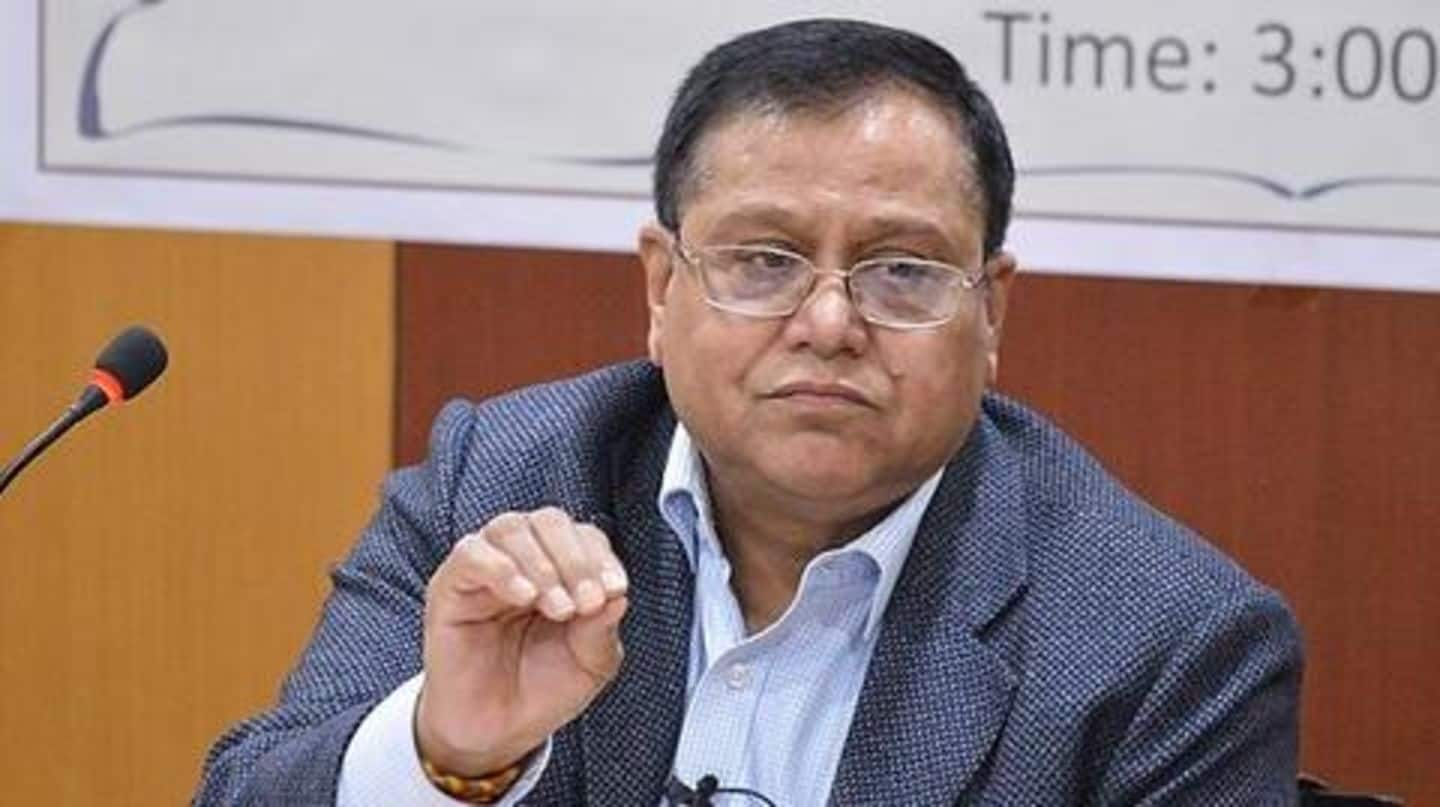
Internet used for watching dirty films in J&K: VK Saraswat
What's the story
NITI Aayog member VK Saraswat justified the suspension of internet services in Jammu and Kashmir by saying that it was only used for "watching dirty films." Saraswat also said that the curbs imposed on the internet did not significantly affect the region's economy. Internet services in J&K have been restricted since August last year when the Centre repealed the erstwhile state's special status.
Details
'What difference does it make if Kashmir doesn't have internet?'
On Saturday, Saraswat spoke to reporters on the sidelines of the annual convocation at Dhirubhai Ambani Institute of Information and Communication Technology (DA-IICT). Saraswat said, "What difference does it make if there's no internet in Kashmir? What do you watch on the internet there? What e-tailing is happening? Besides watching dirty films, you do nothing."
Information
'Internet suspension has no significant economic impact'
When asked why the internet had been suspended if he thought telecom was key to India's growth, Saraswat said, "I am saying that if there is no internet in Kashmir, then it does not have a significant effect on the economy."
Twitter Post
You can watch a clip of Saraswat's remark here
#WATCH: NITI Aayog's VK Saraswat says "...They (politicians) use social media to fuel protests. What difference does it make if there’s no internet in Kashmir? What do you watch on internet there? What e-tailing is happening? Besides watching dirty films, you do nothing. (18.01) pic.twitter.com/slz9o88oF2
— ANI (@ANI) January 19, 2020
Internet restrictions
SMS, voice calls resumed for prepaid connections in J&K
Saraswat's statement came on the day when SMS and voice call services were resumed in J&K for prepaid mobile connections. 2G mobile data services were restored, albeit for "white-listed websites" only, in all 10 Jammu districts and two Kashmir districts: Kupwara and Bandipora. Earlier, the administration had restored broadband internet services, however, social media websites remain banned.
Quote
Politicians want to fuel Delhi-like protests in Kashmir: Saraswat
Saraswat said, "Internet is down in Kashmir, but isn't internet available in Gujarat? The reason for shutting down the internet in Kashmir is different," adding that the internet was suspended to curb misinformation and in favor of "taking Kashmir forward." Saraswat also accused certain politicians of only wanting to go to Kashmir to replicate the kind of protests witnessed in Delhi.
Update
Saraswat later claimed he was misquoted; apologized for hurting sentiments
Saraswat has since apologized for his remarks. He told ANI on Sunday that he was "quoted out of context, adding, "If this misquotation has hurt the feelings of the people of Kashmir, I apologize." He said, "I would not like them to carry this impression that I am against the rights of the Kashmiris to have internet access.
On protests
Anti-CAA protests affecting economy: Saraswat
On Saturday, Saraswat had also criticized the nationwide protests against the Citizenship Amendment Act, National Register of Citizens, and National Population Register. "Think about the man-hours lost," Saraswat said, "How many factories remained shut, traffic came to a standstill, hospitals remained closed, All this contributes to GDP... Work in JNU has been stopped since October last year... the losses are affecting the economy."
On JNU
'JNU protests about settling score; not fee-hike'
Separately, Saraswat, who is also the Chancellor at Delhi's Jawaharlal Nehru University, addressed the ongoing protests in the varsity over a hostel fee-hike. He said the protests aren't about a fee-hike, but about "settling scores." Refusing to name any parties, Saraswat said JNU is a "left-leaning" institution with "300 of the 600 teachers" from the "hardcore leftist group."
Quote
'Closing down JNU is not a solution'
Praising JNU Vice-Chancellor M Jagadesh Kumar for doing a "wonderful job," Saraswat said, "Closing down JNU is not a solution. We're a democracy and we have to resolve the conflict in a democratic manner." He added, "In the 1980s, when (then-PM) Indira Gandhi was the Chancellor, JNU was closed for 45 days...for similar reasons, and at that time 800 students were jailed in Tihar."